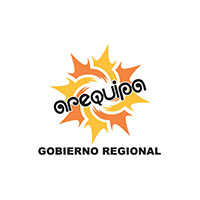Arequipa 2020
All the events are free. Please select and book the events you wish to attend by entering your personal data. You will receive a confirmation mail that will validate your reservation and will be your voucher so that you can access the events virtually.
The schedules shown for each event are in GMT-5 (Lima, Bogotá, Panamá…). Once the live streaming is over, the recordings will be available until 16 November at 12:00 am for free on this website, below each event description. Afterwards, they will be added to Hay Player, our online archive containing audio and video of the events from all Hay Festivals across the world.
View the Hay Festivalito programme: the section for children and young adults.
If you have any trouble making your reservations, you can contact us at contacto@hayfestival.org
Event HFC9
With Patricia Villanueva
Great cultures of the past
Plaza San Francisco
Read moreWith the support of la Municipalidad Provincial de Arequipa
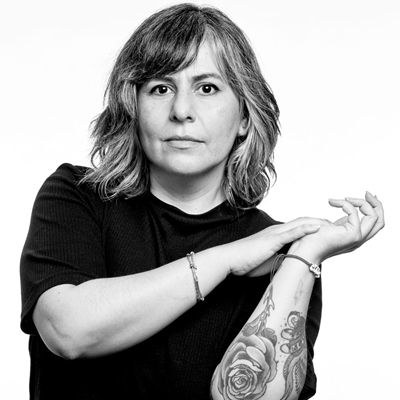
Event HFC10
Workshop with Adriana Roca and Patricia Villanueva
Goldsmiths for a day
Plaza San Francisco
Read moreGoldsmiths and artisans were very important figures in pre-Colombian societies. At this event, children can pretend to be one of them, and will have the sacred mission for the day of creating an artistic figure to be offered to the most important deity of the culture that they choose. To do so, they will receive a clay pot, paints and decorative elements. They will have to paint and decorate the pot as they wish, and to finish, they will receive sheets to colour in on the subject of these cultures of the past. This activity aims to boost the creativity and expressive capacity of children, and is related to respect, self-understanding and national identity. With Adriana Roca and Patricia Villanueva.
With the support of la Municipalidad Provincial de Arequipa

Event 46
Abdulrazak Gurnah in conversation with Philippe Sands
Teatro Municipal
Read moreThe British novelist and academic, of Tanzanian origin, Abdulrazak Gurnah, winner of the 2021 Nobel Prize for Literature and shortlisted for the Booker Prize, is celebrated for his skills in examining the human condition, linking matters such as exile, migration, identity, colonialism and the destiny of refugees among cultures and continents. In conversation with Philippe Sands.
Simultaneous translation from English to Spanish available
Sponsored by SURA

Event 47
Clare Pollard and Gemma Ruiz Palà in conversation with Elisa Guerra
Always the family
Centro Cultural Peruano Norteamericano (teatro)
Read moreGemma Ruiz i Palà (Spain) is a writer and journalist. In her book Les nostres mares, she pays homage to various generations of women in a Catalan family. With its intimate, emotional plot, the book tells of the struggles, sacrifices and strength of mothers and grandmothers, exploring their crucial role in the creation of family identity and Catalan society. Clare Pollard (United Kingdom) is a poet, fiction writer, translator and dramatist, author of various books of poetry. Her first novel is Delphi, a story that occurs in a London flat, where a woman who lives with her husband and ten-year-old son sees how the world is coming apart: the arrival of Trump, the occurrence of Brexit and a virus that spreads around the world, causing mayhem and forcing a lockdown. These two authors will talk to Elisa Guerra.
Simultaneous translation from English to Spanish available
With the support of British Council and Instituto Ramón Llull
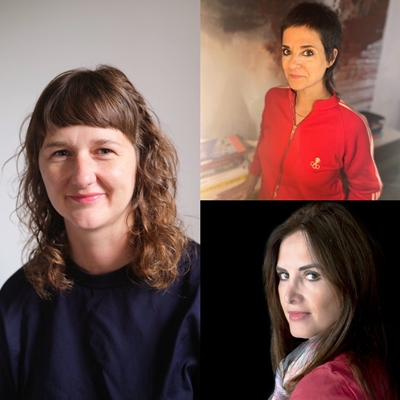
Event 48
Juan Luis Ossa and Natalia Sobrevilla in conversation with Magally Alegre Henderson
Bicentenaries in Latin America
Centro Cultural Peruano Norteamericano (auditorio)
Read moreSponsored by Cerro Verde and with the support of the Embassy of Chile

Event 49
Liliana Colanzi in conversation with Verónica Ramírez
You shine in the dark
Colegio de Abogados (auditorio)
Read more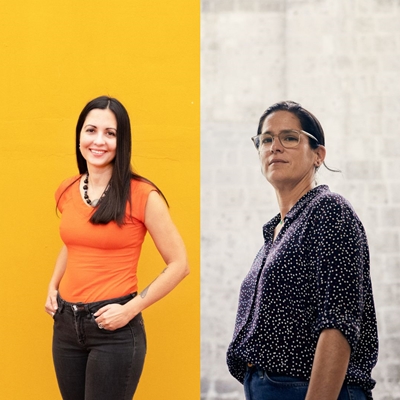
Event 50
Farid Kahhat, Rocío Silva Santisteban and Carlos Umaña in conversation with Jonathan Castro
Rethinking the continent
Teatro Arequepay
Read more
Event 51
María Larrea, Enrica Pérez and Judith Vélez in conversation with Juan Fernando Londoño
On film
Casa Tristán del Pozo - Fundación BBVA
Read moreSponsored by CAF and with the support of Acción Cultural Española, AC/E
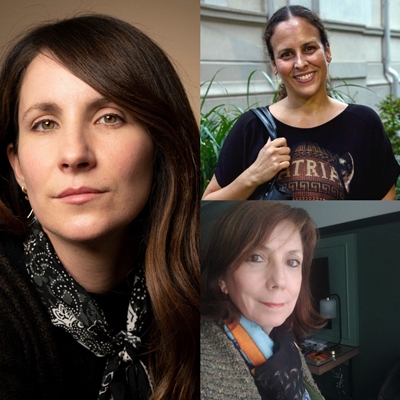
Event HFC11
Christophe Talmont in conversation with Doris Zuzunaga
Music, a means of communication
Plaza San Francisco
Read moreWith the support of la Municipalidad Provincial de Arequipa and the French Embassy

Event 52
Diego Enrique Osorno in conversation with Camila Osorio
El País event
Teatro Municipal
Read moreWith the support of Open Society Foundations
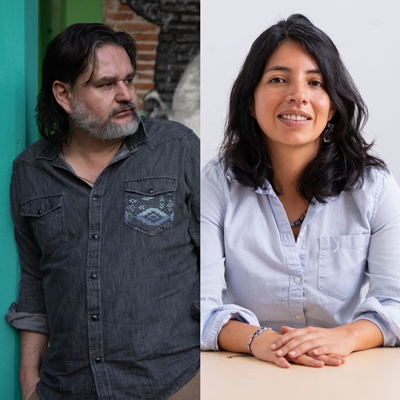
Event 53
Alfredo Villar in conversation with Karen Bernedo
Chacalón
Centro Cultural Peruano Norteamericano (teatro)
Read moreNo figure has had more impact on Peruvian popular culture than Lorenzo Palacios Quispe, known as “Chacalón”. A musical idol, hero of the working class, saint and prophet of the dispossessed, his memory has attained legendary stature in a country constantly struggling against despair and injustice. Papá Huayco is a novel portraying the life of Chacalón through a range of voices that speak through a poetic register and the language of the street, telling a story which is also that of so many thousands of Peruvians, who came to Lima in the last half of the 20th century. Alfredo Villar is a curator, art historian, music researcher, writer and DJ, and he has recently published the widest-ranging study carried out into Peruvian Cumbia: Yawar chicha: los ríos profundos de la música tropical peruana. In conversation with Karen Bernedo.

Event 34
Cristina Fuentes La Roche and Doris Guillén in conversation with Juan Fernando Londoño
How to pay for culture
Colegio de Abogados (auditorio)
Read moreSponsored by CAF
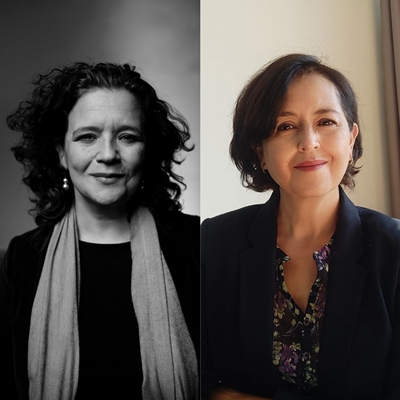
Event 54
Abdulrazak Gurnah, Astrid Madimba, Natalia Sobrevilla and Chinny Ukata in conversation with Farid Kahhat
South to south conversations: decolonizing in order to see the world
Teatro Municipal
Read moreAre we at the end of decolonisation processes, or are these structures present throughout the world order? At this event, we talk to Abdulrazak Gurnah (Tanzania/United Kingdom), Chinny Ukata (Nigeria/United Kingdom), Astrid Madimba (Congo/United Kingdom) and Natalia Sobrevilla (Peru) about the long shadow of colonialism and how the long task of decolonisation is to be carried out, from the positioning of non-hegemonic narratives to countries’ legal and devolution processes. In conversation with Farid Kahhat.
Simultaneous translation from English to Spanish available
With the support of Open Society Foundations

Event 55
Hamja Ahsan and Ekaitz Cancela in conversation with Giacomo Roncagliolo
On utopias
Centro Cultural Peruano Norteamericano (teatro)
Read moreWe talk about utopias with two contemporary thinkers who also reflect on technology. Ekaitz Cancela Rodríguez (Spain), author of Utopías digitales, is a journalist, editor of The Syllabus, publishes articles in El Salto, and is one of the founders and managers of Radical Books, the cooperative that publishes Verso Libros and Manifest Llibres. In Tímidos radicales, the artist and activist Hamja Ahsan (United Kingdom) proposes a utopia: a state for calm, introverted people on the autism spectrum, whose national anthem is the sound of a sea snail, and where the wealth of contemplation, reflective solitude and intimate company is celebrated. In conversation with Giacomo Roncagliolo.
Simultaneous translation from English to Spanish available
With the support of British Council and Acción Cultural Española, AC/E
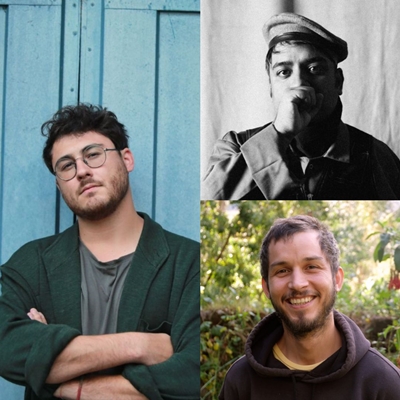
Event 56
Diego Enrique Osorno, Federico Rivas and Américo Zambrano Romero in conversation with Clara Elvira Ospina
What is happening in the Americas?
Centro Cultural Peruano Norteamericano (auditorio)
Read more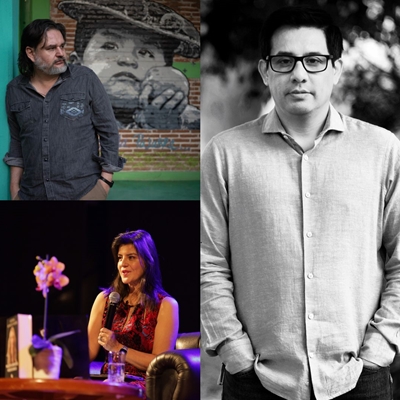
Event 59
Pablo Cateriano y Gonzalo Zegarra in conversation with Mabel Cáceres
Communication and technology
Casa Tristán del Pozo - Fundación BBVA
Read moreCompanies which use social media services such as TikTok; media outlets that offer versions of their news on the Internet; polarization and the goal of positioning ideas; we talk to two experts in communication, social media, democracy and politics. Pablo Cateriano (Peru), Communication graduate, journalist and CEO of Métrica, is the author of El arte de ser y parecer: Cómo construir y cuidar la reputación empresarial, a guide about the importance of reputation and public relations in corporate communication, based on his vast experience and with reference to successful cases. Gonzalo Zegarra (Peru) is a lawyer, former editor of Semana Económica and member of prominent press boards. In his book La democracia del click y del TikTok he covers the challenges of social media to politics, highlighting both their capacity to democratise public voices as well as their potential for creating intolerance and polarisation. These two experts will talk to Mabel Cáceres.
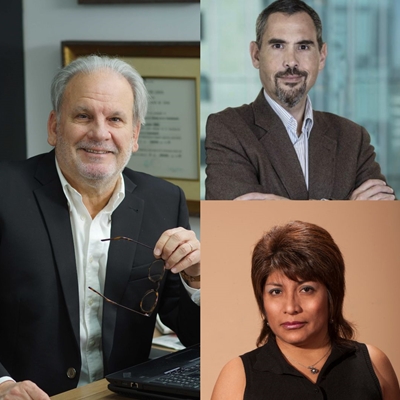
Event 64
Dinu Flamand in conversation with Victoria Guerrero Peirano
We keep coming back to César Vallejo
Teatro Arequepay
Read moreThe poet, essayist, and translator Dinu Flamand (Romania) is an enthusiast of César Vallejo’s work, which he has translated and on which he will speak, in relation to his own poetry, with Victoria Guerrero Peirano. Flamand has been involved in cultural content creation since his student years, later working in various newspapers, magazines, and publishing houses in Bucharest. He lived in exile in Paris during the last years of Ceaușescu’s dictatorship, reconnecting with the literature of his country after the regime ended. He has won the National Mihai Eminescu Prize, and his literary work, especially in poetry and literary criticism, is extensive, with books in translation published in several countries.
With the support of the Romanian Embassy
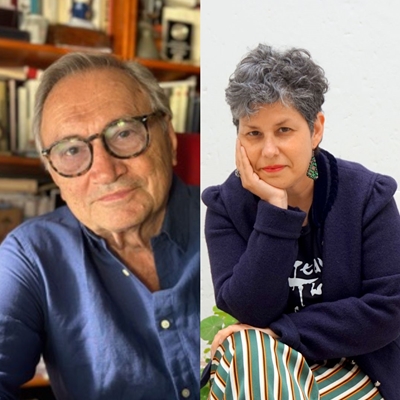
Event HFC12
Cécile Blouin and Carla Galdós
Yeniret’s tree
Plaza San Francisco
Read moreThe book El árbol de Yeniret, written by Cécile Blouin and Stéphanie Borios, tells the story of Yeniret, a migrant girl who, after a long journey, arrives in Peru with her mother, grandmother and sister. The story deals with the difficulties involved for a migrant child in adapting to attending school. The book’s presentation will feature one of the book’s authors, a French-Peruvian writer who specialises in human mobility, and Carla Galdós, an Arequipa-based reading mediator. Together, they will exchange thoughts about migration and the challenges facing migrants when it comes to fitting into their new communities. This event will be run within the framework of the Tejiendo Culturas project, promoted by the UNESCO and OIM offices in Peru, with the goal of promoting social cohesion and intercultural dialogue among refugee, migrant and sheltered communities in Arequipa and Trujillo.
With the support of the OIM, UNESCO, PRM and the UK Embassy in Lima
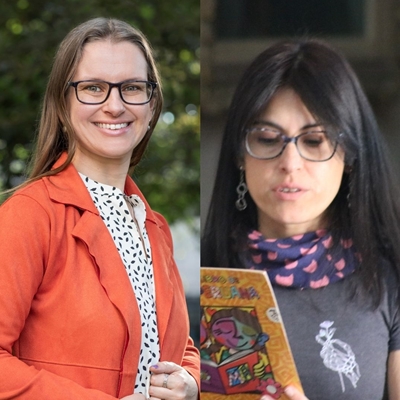
Event HFC13
Arequipa minichef workshop with Diana Escobedo
Plaza San Francisco
Read moreWith the support of la Municipalidad Provincial de Arequipa
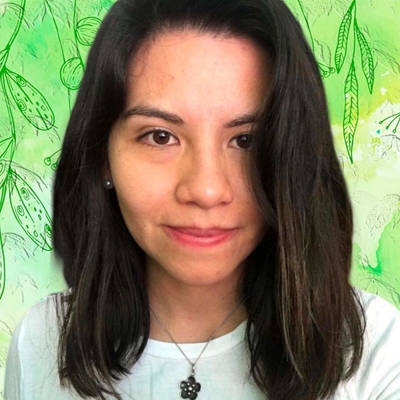
Event 58
Colombe Schneck in conversation with Doris Guillén
Teatro Arequepay
Read moreColombe Schneck is a prominent French writer, journalist, and documentary filmmaker of Jewish origin, whose literary career is characterized by her profound exploration of themes such as memory, identity, and the traces of the past. Throughout her career, she has received numerous awards, such as the Premio Murat in 2006 for L'Increvable Monsieur Schneck and the French Academy Anna de Noailles Prize in 2010 for Une femme célèbre. Her new book, Swimming in Paris: A Life in Three Stories (2024), will soon be published in at least seven countries and gathers three iconic short novels: Seventeen, Friendship, and Swimming. With this work, Schneck broadens her international reach, establishing herself as a contemporary classical author. In conversation with Doris Guillén.
Simultaneous translation from English to Spanish availableWith the support of the French Embassy

Event 60
Javier Moro in conversation with Clara Elvira Ospina
They want us dead
Teatro Municipal
Read more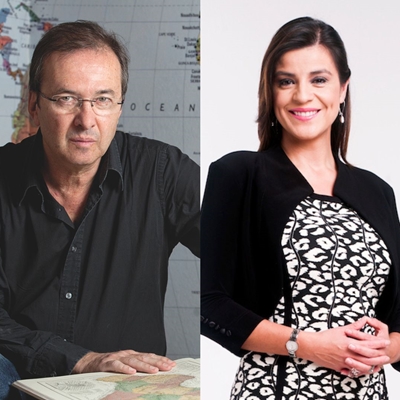
Event 61
Randa Jarrar, Hari Kunzru and Karima Ziali in conversation with Karina Pacheco
Identity and diaspora in literature
Centro Cultural Peruano Norteamericano (teatro)
Read moreLiterary figures who question their own identity, or who seek their own space. The reality of migration, exile and the diaspora are great parts of life and great themes in literature. Karina Pacheco talks to the Palestinian-US writer Randa Jarrar, the Moroccan-Spanish writer Karima Ziali and the British writer with a partly Indian background, Hari Kunzru, about their works, their literary explorations and how these themes of displacement, migration and diaspora have affected their literature.
Simultaneous translation from English to Spanish available
With the support of British Council, Acción Cultural Española, AC/E and Casa Árabe
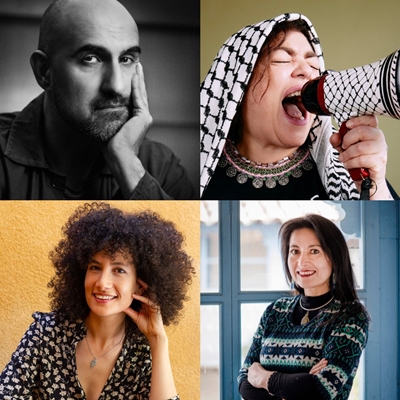
Event 62
Marcel Velázquez in conversation with Magally Alegre Henderson
Sexuality and history
Centro Cultural Peruano Norteamericano (auditorio)
Read more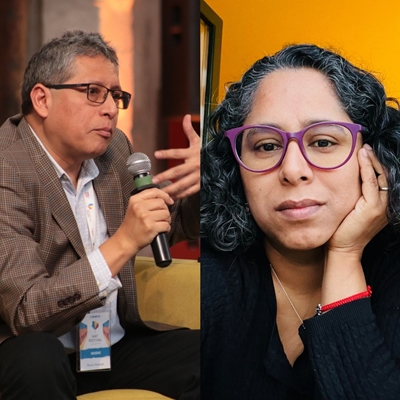
Event 63
Juan Manuel Robles in conversation with Paola Donaire
Colegio de Abogados (auditorio)
Read more
Event 65
Manuel Choqque, Mónica Huerta and Waldir Maqque talk to Andrea Ortiz de Zevallos
Peruvian gastronomy and produce
Casa Tristán del Pozo - Fundación BBVA
Read moreJust as with the cocoa of the Amazon region, which links the geographical origin of the product with the human factors of ancestral practices and beliefs, there are many Peruvian ingredients that cry out to be recognised, cared for and preserved. This session focusses on reflecting on the sources of these unique foodstuffs, which can only be found locally, and their use in the now world-renowned Peruvian cuisine. Are we going beyond marketing towards a genuine appreciation of our local varieties? Andrea Ortiz de Zevallos, Head of the Despensa Amazónica team and author of the book Madre de Dios, will talk to the agricultural engineer Manuel Choqque; Mónica Huerta, a gastronomical ambassador for the Peru brand, picantera and owner of La Nueva Palomino; and Waldir Maqque, author of the successful book Qué riquito.
Sponsored by TGP

Event HFC14
La niña que tejía sonrisas
Plaza San Francisco
Read moreAt this dynamic event, we will listen to a storyteller, reflect on new ideas, and send good wishes to the characters in this story. La niña que tejía sonrisas is a book that deals with the lives of migrant families, the reasons they leave their place of origin, and how they integrate into a new culture. With the help of kamishibai –a Japanese storytelling technique that uses paper, pencils, postcards and a lot of creativity to create a play– we will connect with Ema, Nifá and many other new friends.
With the support of the OIM, UNESCO, PRM and the UK Embassy in Lima
Event HFC15
Bruno Pinasco in conversation with Carla Galdós
Tea Shop
Plaza San Francisco
Read moreWith the support of la Municipalidad Provincial de Arequipa
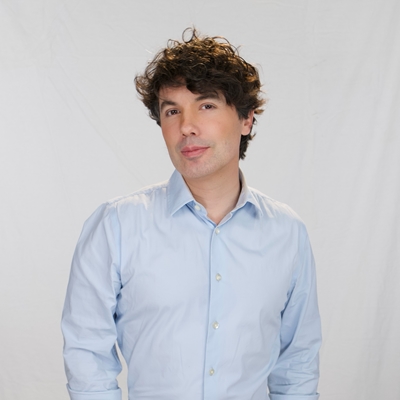
Event 66
Charles Walker in conversation with Karen Bernedo
The private side of Túpac Amaru
Teatro Municipal
Read more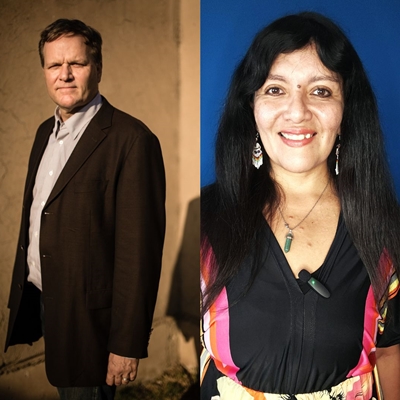
Event 67
Screening of La Montaña, presented by Diego Enrique Osorno
Centro Cultural Peruano Norteamericano (auditorio)
Read moreThe Zapatista movement takes to the high seas, and this event is the one portrayed by Diego Enrique Osorno in the documentary La montaña. For over 50 days, he shared with the crew of this ship, and with seven Zapatista representatives, a journey that emulates the one in which the conquistadors came to the New World. Now, the indigenous world makes contact with Europe in order to bring the news of communities that resist. The director will present the documentary.
Director: Diego Enrique Osorno
Duration: 92 min.
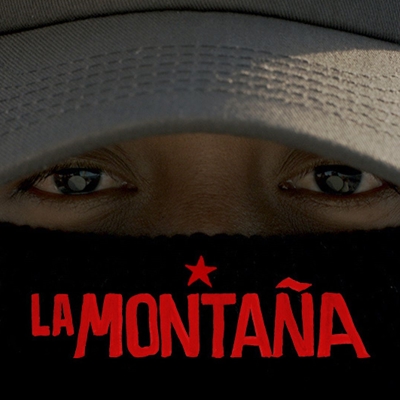
Event 69
Rossella Menna and Armando Punzo in conversation with Andrés Luque Ruiz de Somocurcio
An idea bigger than me
Teatro Arequepay
Read moreThe book Un'idea più grande di me (An idea bigger than me) is a compilation of the extensive experience of Armando Punzo (Italy), who has been in theatre for over 40 years. Punzo, winner of a career Golden Lion at the 2023 Venice Theatre Biennial, is a director, playwright and actor. Since 1988 he has been working at Volterra prison, where he founded the Compagnia della Fortezza, the first and longest-lasting theatre experience in a penitentiary institution, currently made up of around 70 prisoner-actors. The co-author of the book, Rossella Menna (Italy), teaches Literature and the Philosophy of Theatre at the Accademia di Brera (Milan) and co-edits the theatre column in the cultural publication Doppiozero. She has also edited a number of films and has recently written Qualcosa di sé: Daria Deflorian e il suo teatro, about the life and career of this actor, author and theatre director. In conversation with Andrés Luque Ruiz de Somocurcio.
Simultaneous interpretation from Italian to Spanish available
With the support of the Istituto Italiano di Cultura

Event 70
Jeremías Gamboa, Daniel Mordzinski, Karina Pacheco and Dante Trujillo in conversation with Clara Elvira Ospina
Ten years of the Hay Festival Arequipa through its conversations
Casa Tristán del Pozo - Fundación BBVA
Read moreWe celebrate ten years of the Hay Festival in Peru with the publication of a commemorative book, which compiles 15 memorable conversations that captured the interest of the public as part of the festival. We talk to the book’s editor, Dante Trujillo (Perú), the author Jeremías Gamboa (Perú), the photographer Daniel Mordzinski (Argentina), the author Karina Pacheco (Perú) and the journalist Clara Elvira Ospina (Colombia) about the positive and inspiring effects of the conversations that the Hay Festival Arequipa has made possible in the decade it has been running.
With the support of the Spanish Embassy
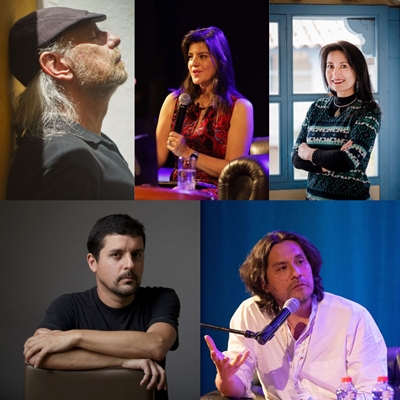
Event 72
Cécile Blouin, Lucero Condori and Diana Moncada in conversation with Natalia Sobrevilla Perea
We are migrants: testimonies from literature and art
Colegio de Abogados (auditorio)
Read moreBased on the work of the three guests, who will talk to Natalia Sobrevilla Perea, this event will look at how culture facilitates the understanding of complex phenomena such as migration, paying particular attention to the situation of women migrants. It will also look at how culture contributes significantly to integration, as a key vehicle for social cohesion and mutual understanding among diverse communities in the city of Arequipa. The knowledge and experiences shared by these authors will enable a profound reflection on these matters, underlining the crucial role of culture in the construction of inclusive and resilient communities. With Cécile Blouin (France), Lucero Condori (Peru) and Diana Moncada (Venezuela).
With the support of the IMO, UNESCO, PRM and the British Embassy

Event HFC17
Paper stories workshop with Raúl Chuquimia
Plaza San Francisco
Read moreWith the support of la Municipalidad Provincial de Arequipa
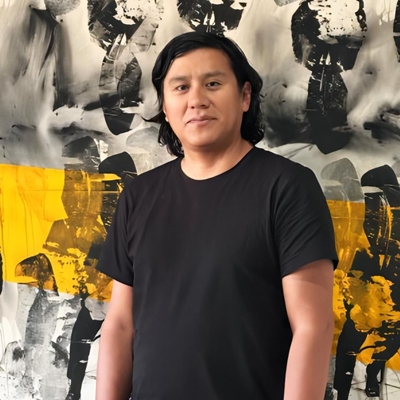
Event 68
Juan Carlos Belón Lemoine in conversation with Alonso Ruiz Rosas and Ros Postigo
Photography and Heritage
Colegio de Abogados (auditorio)
Read moreAlonso Ruiz Rosas is a poet, cultural manager and founder of the UNSA Cultural Centre in Arequipa, among other projects; he and Juan Carlos Belón, an accomplished Arequipan photographer based on France, will talk, among other matters, about the importance of artistic and cultural questions, and about Sin interés aparente, the exhibition of Belón’s work that is being shown at the UNSA Cultural Centre. In conversation with Ros Postigo.
With the support of la UNSA

Event 71
Play Watanabe: todo el vasto fondo marino
Centro Cultural Peruano Norteamericano (teatro)
Read moreWatanabe: todo el vasto fondo marino, by the dramatist and director K’intu Galiano, is poetry become theatre. The performance will introduce the audience to the most sensitive milestones in the life of the poet José Watanabe Varas (1945-2007), through a narrative that is set in his final years, but with an eye always on the past. Watanabe, born in Laredo, Trujillo, is known as one of the most outstanding and profound poets in Peruvian and Latin American literature. His work is the outcome of the cultural syncretism between the Andean world and his Japanese heritage.
With the actors Carlos Mesta, Teresa Ralli, Diana Chávez and Renato Rueda.
Duration
Sponsored by Grupo Gloria

Event 74
Teresa Fuller Granda in conversation with Alberto Rincón Effio
Chabuca Granda, in her own words
Casa Tristán del Pozo - Fundación BBVA
Read moreLas palabras de Chabuca is a publication from the Biblioteca Abraham Valdelomar press, which brings together, for the first time, all the journalism content available related to the great Peruvian composer, creating an autobiographical profile with her own words, in a way that has never been done before. The book was first published in September 2020 to mark a century since her birth. That first edition had 14 interviews given by Isabel “Chabuca” Granda y Larco between 1959 and 1982 in countries such as Mexico, Venezuela, Argentina, Chile, Spain and Peru. This second edition has over 130 texts, mainly interviews, some given in Brazil and Colombia, as well as news stories, cuttings of her presentations, and posthumous homage paid after her death in March 1983. Her daughter, Teresa Fuller, Chair of the Chabuca Granda Cultural Association, will talk to the book’s editor, Alberto Rincón Effio.
With the support of the Biblioteca Abraham Valdelomar

Partner for Latin America

Principal Sponsors



Government Partner
